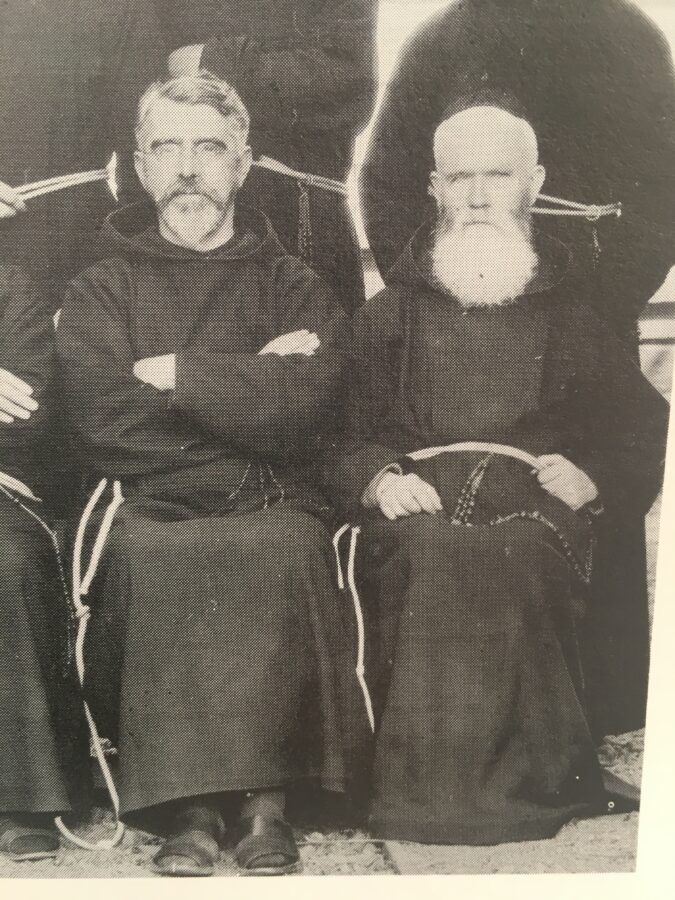
Kieran’s Our City, Our Town Article,
Cork Independent, 27 October 2022
Journeys to a Free State: Quests by the Trade Union Movement
During October and November 1922, the Cork and District Trade and Labour Council came to the forefront of promoting peace plus endeavoured to champion local industry. With regard to peace, on 26 October 1922, at a meeting of the Council, Mr George Nason, Chairman, presided, and praised the peace seeking work of their Honorary President, Fr Thomas Dowling, had, for some time past, been very busy in an endeavour to bring about peace in the country.
Fr Dowling’s obituary in the Cork Examiner on 9 January 1951 highlights that he was a native of Kilkenny, where he was born in 1874. He entered the Capuchin Order in his native city at the age of sixteen and was ordained in the Capuchin Church in Kilkenny in December 1896. He arrived shortly afterwards to Holy Trinity Church in Cork.
During the Great War 1914-1918 the cost of ordinary commodities rose considerably in Cork City. As a result, the interplay between rising costs and wages began to affect the economy. Wages could not match prices so strikes were called. Fr Thomas, who had studied social reform, threw himself wholeheartedly into the work of mediation and arbitration in 1918 between employers and trade unions. Fr Thomas clocked up notable accolades. The Freedom of Cork City was conferred upon him in June 1918. The Senate of the National University of Ireland paid tribute in 1920 by conferring on him the honorary degree of LL.D. A physical recognition for his general services for the Cork Trade Unions exists in a stained-glass window, to his memory in Holy Trinity Church.
George Nason commented that Fr Thomas was leaving no stone unturned to bring about peace, and he asked the delegates, to pass a resolution showing that the workers of Cork were with him in his good work. Proposing the motion, Mr Weldon said they heartily welcomed the efforts of Fr Thomas, and felt proud that these efforts emanated through him as a representative of Labour. Mr Weldon proposed the following resolution:
“We, the Workers’ Council of Cork, gladly welcome the news of the efforts for peace that have reached us. We appeal to all concerned to submerge all personal feelings in an effort to save our loved country from the ruin that threatens it. The stagnation of industry is causing appalling suffering, to thousands in our midst, and on their behalf we strongly appeal. We congratulate our beloved Honorary President, Very Rev. Dr. Thomas on his patriotic efforts to end the present deplorable position in the country, and feel sure that if any man could effect a settlement he will do so”.
Mr Matheson seconded. The resolution was passed unanimously. Miss Buckley of the Women’s Workers’ Union), supported the motion and called for peace; “If we do not take a stand now and put an end to this awful tragedy we cannot expect other people to do it for them…I hope that this peace would be a lasting peace, and not one calculated to give breathing space to either side”.
Apart from promoting peace, the Cork District Trades and Labour Council objected strongly through a campaign to lessen the wholesale importation of goods, which could be very easily manufactured locally. They liased closely with the Executive Council of the Cork Industrial Development Association. They asked the Association to appoint a deputation to interview the manager of the Cork Clothing Factory for the purpose of discussing ways and means to avoid the importation of ready-made clothing. As a result of the interview, it was discovered that in the purchase of ready-mades the public still regarded price as the chief determining factor. Indeed the workers and housekeepers when purchasing ready-made garments rarely enquired as to whether such garments were made in Ireland or were made up of Irish material.
It was demonstrated to the members of the deputation of the Cork Industrial Association that in the case of two to three garment articles of Leeds and Cork manufacturersthat although the Leeds product was a few shillings cheaper in price, the Cork product had wearing properties of three times the duration of the corresponding English ready-made suit. However, the material of the all-Irish ready-made very much excelled the material and finish of the corresponding English ready-mades.
The Cork Industrial Development Association were quick to note that in purchasing a ready-made suit turned out in Leeds that Cork workers were keeping English woollen mills in operation and English workers in constant employment.Whilst on the other hand the Association argued that they were helping to close up Irish woollen mills and to disemploy Irish factory hands in clothing establishments.
Under these circumstances it was decided to circularise all the trade unions in Cork asking the officials of same to circularise all their members a request that when purchases were being made that Irish goods should be given preference. Where there was a marked discrepancy in prices as compared with those of foreign make, the Cork Industrial Development Association was prepared to investigate the reasons and to take up all cases.
Coupled with the promotion of Irish goods, the Association approved of the formation of the Cork Animated Advertising Agency at St Patrick’s Street, Cork and several “Irish manufacturers of good standing” availed of the medium of advertising offered through the Agency. The Association was satisfied that the advertisements inserted in the publication of the Agency would be in the interest of Irish industry.
Caption:
1174a. Fr Thomas Dowling, on the left, c.1924 from The Irish Capuchins, Record of a Century, 1885-1985 (source: Cork City Library).